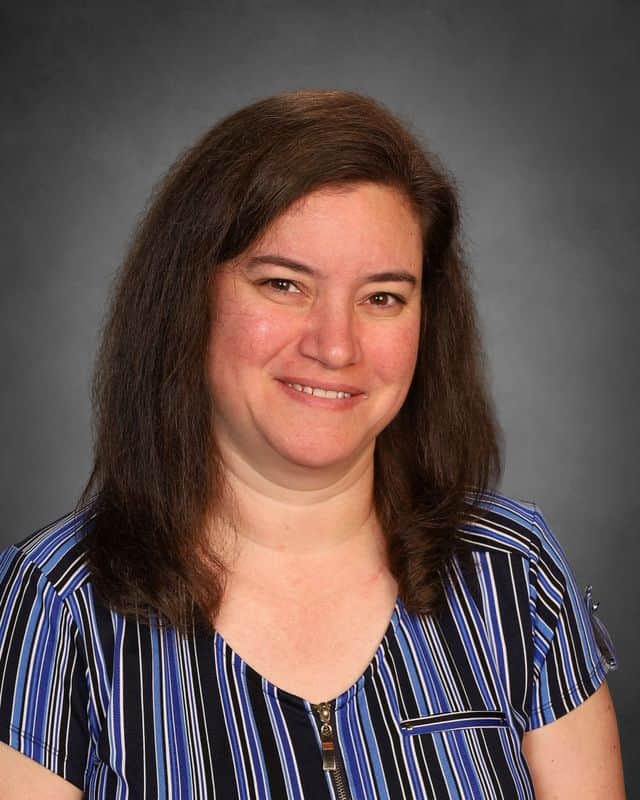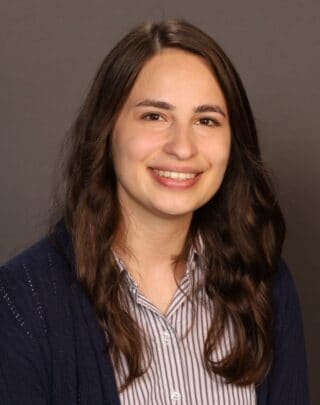Kennedy Catholic Science
"There is grandeur in this view of life, with its several powers, having been originally breathed by the Creator into a few forms or into one; and that, whilst this planet has gone cycling on according to the fixed law of gravity, from so simple a beginning endless forms most beautiful and most wonderful have been and are being evolved. ”
— Charles Darwin
Department Overview
Albert Einstein once described science as “the attempt of the human mind to find connections between the world of ideas and the world of phenomena.” The Science Department strives to bring Einstein’s definition of science to life in the minds and work of its students. Courses in biology, chemistry and physics expose students to the crucial observations and theories that constitute our fundamental understanding of the natural world.
Laboratory work is integral to all courses. As we guide our students through experiments that introduce them to new phenomena, demonstrate key concepts and challenge them to solve problems, we seek to demystify scientific inquiry by stimulating curiosity and enabling students to satisfy this curiosity through discovery. Throughout our courses we strive to teach students how to think and act like scientists and to nurture in them an appreciation of the natural world and an inclination to use their abilities in science to solve problems and act responsibly in society.
Science Department Course Offerings
View the Course Booklet HERE
Grade 9 – Biology
Pre-AP Biology
Students engage in real-world data analysis and problem solving that sparks critical thinking about our living world. As students engage in grade- level content, they utilize the kind of scientific reasoning skills needed to analyze the natural world—and to succeed in future science and social science courses in high school and college.
AP Biology for freshman
This course is offered to students who have previously taken High School level Biology or the Living Environment Course and Regents.
The AP course is designed to be the equivalent of a college introductory Biology course taken by Biology majors.
AP Biology covers, in depth, the study of living organisms. The course includes an emphasis in inquiry-based investigations, with a quarter of the course dedicated to hands-on learning through labs.
Grade 10 – Chemistry
Pre-AP Chemistry and Pre-AP Chemistry Honors
Students develop a deep conceptual understanding of matter and energy at the molecular level as they learn to explain their macroscopic observations using particulate-level reasoning. As students engage in grade-level content, they utilize scientific reasoning skills needed to analyze the natural world—and to succeed in future science and social science courses in high school and college.
Grade 11 – Earth Science
Earth Science
Provides the student with an understanding and an appreciation of this planet. Some of the topics covered are: Earth dimensions, minerals and rocks, the dynamic crust, earthquakes, landscapes, glacial geology, the Earth’s history, meteorology, water cycle and climate and environmental awareness. The student should have a background in the skills of observation and interpretation and analysis of data.
Grade 11 – Physics & AP Physics
Physics
Covers the concepts of motion, Newtonian mechanics, energy, light and sound waves, electricity and magnetism, and modern physics, preparing students for taking Advanced Placement (AP) Physics 1 the following school year.
Emphasis is on mathematical analysis and real world applications.
AP Physics 1
An algebra-based, introductory college-level physics course that explores topics such as Newtonian mechanics (including rotational motion); work, energy, and power; impulse and momentum.
Through inquiry-based learning, students will develop scientific critical thinking and reasoning skills.
The class prepares students for intermediate and advanced college courses by making demands upon them equivalent to those made by introductory college courses.
Grade 12 – Environmental Studies
This is a Senior elective course that includes the study of environmental science both locally and globally. Topics will include ecological principles, population dynamics, economics, law, philosophy, resource management and sustaining society.
Grade 12 – Applied Physics
This year long course will provide the student with an understanding of the major concepts of traditional physics, including measurements and mathematics, mechanics, energy, electricity and magnetism, waves and light, and the modern physics topics of quantitative mechanics, relativity, and nuclear physics.
AP – Environmental Science
A multidisciplinary course that ties together scientific principles from geology, chemistry, biology, geography, and Earth Science.
It is designed to represent a one-semester introductory environmental science course.
Students are expected to practice various scientific methodologies to examine, analyze, and interpret scientific evidence to propose and evaluate solutions to environmental problems.
AP – Biology
Designed to be the equivalent of a college introductory Biology course taken by Biology majors.
Areas covered are cells, genetics, evolution, ecology, and plant and animal form and function.
AP level approved labs will be a part of the curriculum, with appropriate lab reports.
AP – Chemistry
The AP Chemistry course is the equivalent of a first-year general chemistry course in the first year of college.
Students who take the AP Chemistry course will develop advanced inquiry and reasoning skills, such as developing a plan for collecting data, analyzing data, applying mathematical routines, and connecting concepts in and across domains.
The result will be readiness for the study of advanced topics in subsequent college courses. Laboratory science is a major component of the AP Chemistry course.
AP – Computer Science
An introductory course for any student interested in programming, computers, and technology
Previous experience in programming is not necessary; this course lays the groundwork for understanding the basic principles behind writing code in any language.
Throughout the course, topics such as image and sound manipulation are discussed, as well as data mining, security, and ethical practices.
AP – 3D Modeling
This is a Senior level elective. The purpose of this course is to teach the principles of polygon modeling in Maya and Forger.
Students will begin by learning both the Maya and Forger interfaces and user settings, as well as good work habits.
Through projects students will create various models and sculptures that will utilize skills learned.
Department Leadership

Christine Nykwest
AP Biology and Chemistry Teacher

Samuel Reyes
Earth Science, Applied Physics, AP Environmental Science and Environmental Studies Teacher

Patrizia Venturini
AP and Regents Chemistry Teacher



